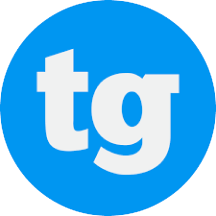
By Manya Saini
(Reuters) -PayPal said on Tuesday it entered into a deal with OpenAI that will allow ChatGPT users to buy products using the payment firm's platform, sending its shares up 10%.
The company also raised its profit forecast for the year again, banking on resilient consumer spending, and announced its first dividend in its 27-year history.
PayPal said the OpenAI partnership will connect its global merchant network to ChatGPT, enabling businesses to sell products and services within the wildly popular generative AI app that has more than 800 million weekly active users.
AI shopping tools are emerging as the next big shift in online retail, as they can autonomously research, compare and purchase products for consumers.
These tools act as digital assistants by understanding user preferences, setting budgets, evaluating reviews and tracking prices over time.
"Agentic commerce is seen by some as a potential 'silver bullet' to leverage PayPal's large and global user base and reignite growth on what could be (to be proven as it's still very early days) a next-gen commerce platform," analysts at Evercore ISI said.
Wall Street is in the middle of an AI gold rush, as banks, investors and tech firms race to harness AI to reshape how money is made, managed and moved.
PayPal said the integration of its platform with OpenAI will make millions of products discoverable and purchasable through ChatGPT.
"We want PayPal to be available anywhere and everywhere that consumers want to pay and we want merchants to be able to sell to consumers anywhere and everywhere," CEO Alex Chriss said in a call with analysts.
RAISES FORECAST, SETS FIRST-EVER DIVIDEND
PayPal said it now expects full-year adjusted EPS between $5.35 and $5.39 versus $5.15 to $5.30 earlier. Analysts had projected $5.24, according to estimates compiled by LSEG.
Its board approved a quarterly dividend of 14 cents per share, representing a targeted payout ratio of 10% of adjusted profit.
"We've moved this business from defense to offence and from stabilization to acceleration," Chriss said.
The company has overhauled its business under Chriss in recent years by prioritizing profitability over aggressive revenue growth.
Once a pandemic-era favorite, PayPal experienced a downturn as consumers returned to physical stores and spending patterns stabilized, prompting the company to focus on high-margin businesses and cost-cutting measures.
Payment volumes have remained resilient as consumers continue to spend despite inflationary pressures and an uneven economic environment, highlighting the durability of the company's core business.
PayPal posted total payment volume growth of 7% on a FX-neutral basis to $458.1 billion.
Its third-quarter revenue rose 6% on a currency-neutral basis to $8.4 billion.
Adjusted EPS came in at $1.34 in the three months ended September 30, versus $1.20 a year ago.
(Reporting by Manya Saini in Bengaluru; Editing by Vijay Kishore and Saumyadeb Chakrabarty)

 Reuters US Business
Reuters US Business
 Adweek
Adweek CNBC Business
CNBC Business The Mercury News Business
The Mercury News Business TIME
TIME PC World
PC World PC World Business
PC World Business The radio station 99.5 The Apple
The radio station 99.5 The Apple NBC News
NBC News St. Louis Post-Dispatch
St. Louis Post-Dispatch Tom's Guide
Tom's Guide WRCB-TV
WRCB-TV Raw Story
Raw Story